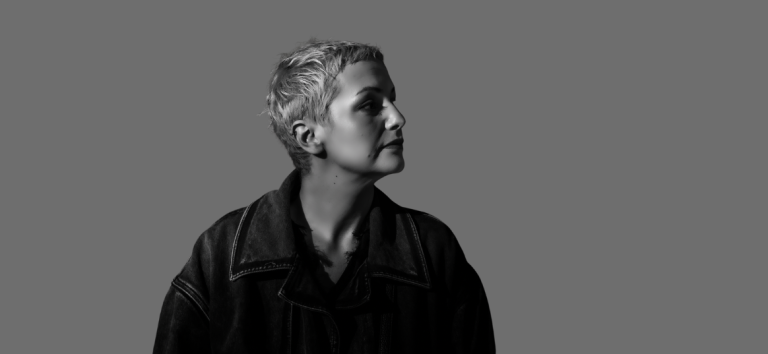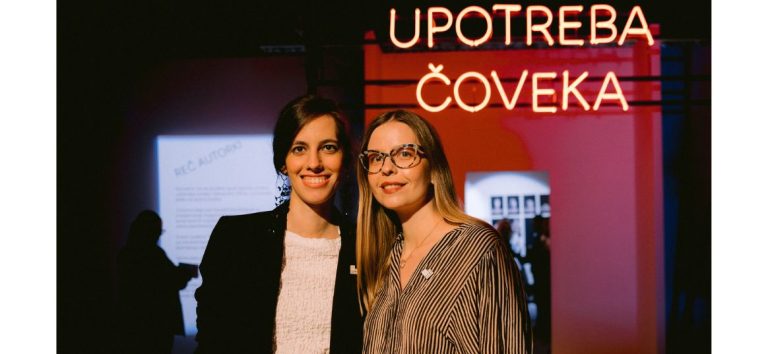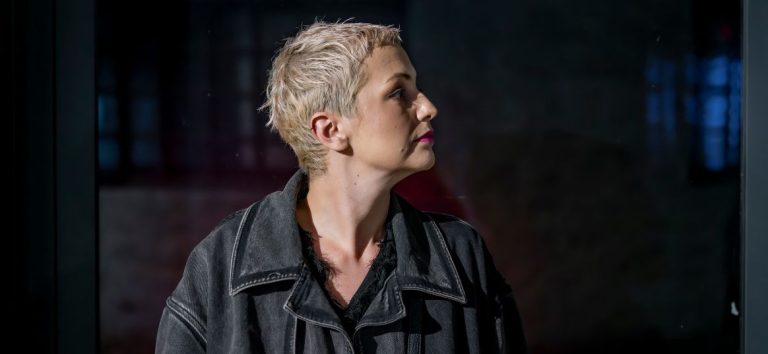Novi Sad citizens and visitors will get the chance to go on a four-day gastro journey – Caravan, within the Migrations programme arch, from 17 to 20 March. We will get the chance to taste the exquisite European dishes, the perfect blend of tastes which will be prepared for us, by the culinary chef Filip Milovanović, head chef and Loft restaurant consultant together with his team.
We will take off on a unique gastro journey through the regions of Eastern, Western, Northern and Southern Europe, with the tastes of diverse cultures, spiced up with the music programme and authentic art. Each day, new gastro pleasures await you at two cultural stations, as well as public cooking and degustation of European specialities. Migrations end with a unique Caravan of the most various tastes! Filip Milovanović spoke to Visit Novi Sad about the combinations of European flavours and dishes which he will prepare for us at the Caravan, as well as about his experiences in working in prestigious international restaurants where he perfected his work, and which represent the top tier of foodservice.
Filip Milovanović was born in Novi Sad, but his passion for gastronomy and perfecting himself, as well as the search for new approaches in cookery, have led him abroad. Having migrated in order to acquire new knowledge, he had worked in the most prestigious restaurants in America, Denmark, Switzerland and even Azerbaijan and Norway. He has gathered his most valuable experience in Michelin 3-star restaurants, where he perfected his craft, and Alain Ducasse, Charlie Trotter, Ferran Adrià, and René Redzepi are just some of the famous chefs he has learned from. After a years-long career as the executive chef of a prestigious restaurant chain in Oslo, Norway, Filip Milovanović returned to Serbia and his hometown of Novi Sad, where he now holds the position of head chef and consultant at Loft.

Caravan visitors will have the opportunity to enjoy the finest European specialities that you and your team are going to create. Can you tell us what we can expect from a culinary master during these four days?
We will take this opportunity to prepare foreign recipes with the use of local, homemade ingredients, and this is exactly what will open the possibility for us to let our imagination run wild in order to create great dishes for visitors. On the first day, we will focus on German and French, while the second day is dedicated to Turkish and Greek cuisine, on the third day the Caravan will have Scandinavian and English specialities on the menu, while on the last day you will try recipes of Ukrainian, Russian, and Polish cuisine. The gastro caravan is designed as a huge buffet for a large number of people, the food will be cooked outdoors, and we have created such a menu that can be adapted according to the available conditions, but again so that the dishes are well prepared for each guest.
What kind of traditional dishes and combinations of flavours will we get the chance to taste?
We will make homemade puffy French croissants and crispy baguettes but also prepare German sausages with sauerkraut and potatoes. You will also try a German cheesecake. You will have the opportunity to enjoy Turkish tulumba and Greek tiropita, a traditional pie with feta cheese on the second day. During the Scandinavian-English presentation, we will serve Danish pastries, as well as traditional English roast with roasted vegetables and gravy sauce, as well as a Swedish cake with almonds and oranges. On the last day, you will have the opportunity to try borscht served with sour cream and buckwheat bread, and for dessert – honey cake medovik. I think visiting the cultural stations will really be worth it!

Does preparing specialities for a gastro caravan, which will be a kind of fusion of European tastes, pose any special challenges? Which of these cuisines suit you the most?
France, for example, is the cradle of gastronomy and when the basic cooking techniques are mastered, they can be easily transferred to all cultures and cuisines of the world. The cuisine is inspiring, but when specific ingredients and groceries from other countries are added to the French cooking technique, which we can play with, we get something completely new and interesting.
Your impressive biography shows that you have professionally trained in various places around the world, working side by side with other culinary artists. How important were these experiences for you and the further development of your career?
Among other places, I improved and gained experience at the Charlie Trotter restaurant which has three Michelin stars. It is a gastronomic Mecca and one of the best restaurants in the world. It is extremely difficult to get to that restaurant and work there, but I was lucky. There, if you do not progress, you lose your chance in a blink of an eye and getting such a chance happens once in a lifetime probably. The chefs are just waiting for the opportunity to replace you… You work 18 hours a day, six days a week. Everything must be pure perfection, and above all – quality and consistency. When the head chef speaks to you, you are the happiest person in the world… The experience was invaluable, it meant a lot to me, even though it was extremely hard to work there, under constant pressure. On one occasion, I got sick and asked for a day off from the head chef, but he was not at all understanding. My job was to be there, work and study, no matter the circumstances. Or I would lose a once-in-a-lifetime opportunity.
Many would describe that as beyond the bounds of cruelty.
How they work and think is cruel, but after that situation, my whole world turned upside down. I was there to learn everything that I know today.

How has this attitude towards you and your colleagues affected you as a chef on the path to achieving your goals?
That attitude helped me to grow a lot, but in a way, it set me back as well, because I can’t apply such criteria here. I’m afraid that people here wouldn’t be able to stand it.
It is a great honour to work in such restaurants, that is beyond question, but how great is the responsibility?
It is a huge responsibility, because every little thing, every dish must be identical to the one from yesterday. You need to be perfect. If you get a coffee today, it must taste exactly the same tomorrow. You need to give more than yourself, working there completely takes over you and is only for those who are ready to dedicate their lives completely to the kitchen. It’s cruel, but you always have a choice.
Your career is every young chef’s dream. What do you think was the key to success in your case – talent, experience, or the constant desire to improve?
I was very stubborn and persistent, and I had an unwavering will and desire to succeed.
We also learned from your biography that you worked for the Royal Family in Serbia for several months? How would you describe that experience and what were your duties? What were the challenges?
I worked as a cook for the Royal Family around ten years ago, for only a few months. It is very difficult to work and cook for individuals every day. I even worked for a Russian billionaire in Nice last year, and I admit that it is mentally difficult to satisfy their desires all day long. It’s uninspiring to me. In general, when I prepare food, it is not important to me whom it was prepared for, but what that food will be like. I want to offer the same thing to every guest, no matter who they are. At the end of the day, the most important thing for me is that I am satisfied with my own work.

In the presentation of your dishes, you combine culinary skills and art. What inspires you the most and makes you creative?
I find inspiration in myself. When I think about a dish, I usually ponder upon my emotions, my childhood, the things I saw, tried, read something about, and when I make a meal, I am guided by the fact that I always use seasonal foods. Then I look at them to be different textures, I combine something crunchy and juicy, sour and greasy, spicy and sweet, to make it all an explosion of taste.
For a dish to be good and successful, it needs to be made not only of good, fresh ingredients, but you also need time and love. These are the things I stick to, to make what I do perfect. When you have a good team, everything goes smoothly and perfectly, but you need to invest a lot of time and energy in building relationships with your team. You need to be a great role model for them, to be able to function together as one and to understand each other

Which dish is your trademark? What do you like to cook for yourself, family, friends?
Honestly, I don’t have a favourite dish or an ingredient. I am guided by the fact that when I touch and feel an ingredient, I immediately get an idea of how to prepare it. It is important that it is fresh and seasonal. I have already mentioned French cuisine, but Turkish cuisine is also very inspiring to me, probably because we have taken over a lot under their centuries-old influence. For example, because of the tulumbas that I made with my grandmother, I entered the world of cooking and fell in love with the kitchen.
What ingredients can you not imagine cooking without?
Butter and salt.
Which Novi Sad restaurants would you single out as pleasant places with excellent cuisine?
I like to go to Trojka to eat a good barbecue, and to Travica for lamb. Let’s say Project 72 is interesting to me, as well as Korpa, but in Novi Sad, restaurants often have quite similar menus, we lack a little variety and something new and different.
Author: Marina Marić
Photo: Marko Pudić








